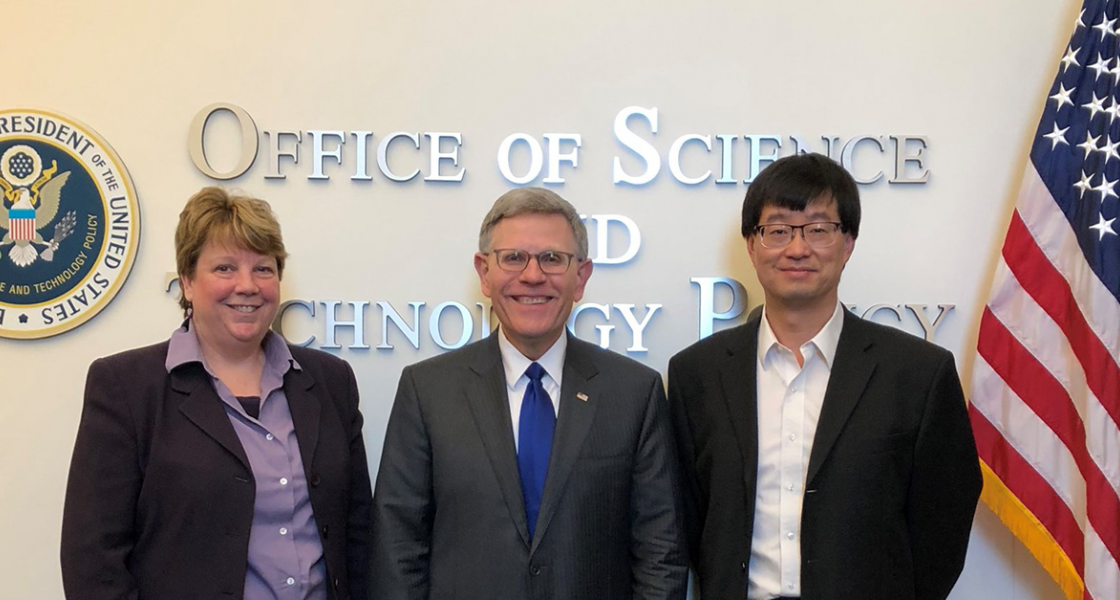On April 17-18, 2019, the University of Colorado Boulder met with leadership at the White House, federal research agencies and in Congress to discuss the university's unique strengths in quantum information sciences, as well as its support for fully funding federal quantum activities authorized in the National Quantum Initiative enacted last year.
Quantum information science and technology is a top priority for United States' research investment dollars. CU Boulder launched its CUbit Quantum Initiative earlier this year to synergize quantum efforts on campus, at NIST and with industry partners. The CU Boulder delegation highlighted this effort and discussed not only the university's research strengths in quantum and rich history of collaboration with NIST, but also new efforts to improve workforce development, convene regional and national stakeholders and accelerate commercialization of new quantum technologies.
The CU Boulder delegation—which included Terri Fiez, Vice Chancellor for Research and Innovation, and Jun Ye, Director of CU Boulder's CUbit Quantum Initiative and a Fellow at JILA—met with Kelvin Droegemeier, Director of the White House Office of Science and Technology Policy and his policy team, leadership at the U.S. Departments of Energy and Defense, and several Colorado congressional offices, including U.S. Senator Cory Gardner and U.S. Representatives Joe Neguse and Ed Perlmutter. Gardner and Perlmutter each serve on their chamber's respective science committees, which have jurisdiction over federal science policy, and Neguse represents CU Boulder in Congress. The visit was supported by CU's Government Relations Office. Engagement with lawmakers and government officials will continue as quantum research advances.



 The Physics Frontiers Centers (PFC) program supports university-based centers and institutes where the collective efforts of a larger group of individuals can enable transformational advances in the most promising research areas. The program is designed to foster major breakthroughs at the intellectual frontiers of physics by providing needed resources such as combinations of talents, skills, disciplines, and/or specialized infrastructure, not usually available to individual investigators or small groups, in an environment in which the collective efforts of the larger group can be shown to be seminal to promoting significant progress in the science and the education of students. PFCs also include creative, substantive activities aimed at enhancing education, broadening participation of traditionally underrepresented groups, and outreach to the scientific community and general public.
The Physics Frontiers Centers (PFC) program supports university-based centers and institutes where the collective efforts of a larger group of individuals can enable transformational advances in the most promising research areas. The program is designed to foster major breakthroughs at the intellectual frontiers of physics by providing needed resources such as combinations of talents, skills, disciplines, and/or specialized infrastructure, not usually available to individual investigators or small groups, in an environment in which the collective efforts of the larger group can be shown to be seminal to promoting significant progress in the science and the education of students. PFCs also include creative, substantive activities aimed at enhancing education, broadening participation of traditionally underrepresented groups, and outreach to the scientific community and general public.